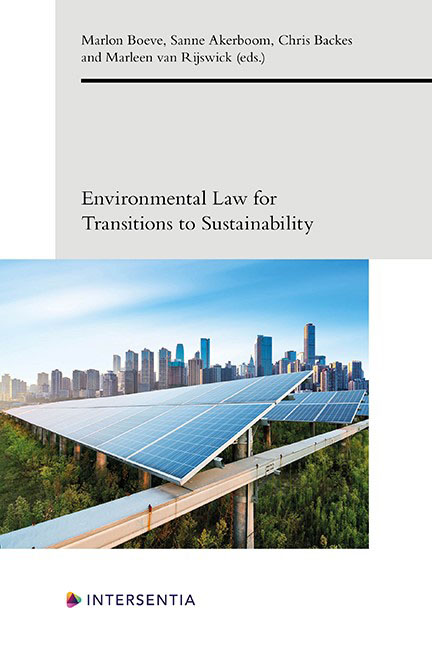The Programmatic Approach to Achieving Sustainability in Environmental Law: Is it Possible?
Published online by Cambridge University Press: 11 November 2021
Summary
INTRODUCTION
Ecosystems are subjected to growing pressures.As humankind's capacity to manipulate and alter ecosystems increases, more and more ecosystem goods and services are secured for socio-economic development. Within scientific communities, a consensus has emerged that global environmental conditions are worsening, with humankind's over-exploitation as the main driver.
Climate change and biodiversity loss are considered to be the two major environmental challenges of our era. A study published in 2016 showed that the adverse impacts of this over-exploitation have already caused biodiversity to fall to unsustainable levels across more than half of the world's landmass. The gravity of these environmental concerns led scientists to assume that a new interval of geologic time period had begun after the ‘Holocene’ , since humans have altered Earth's functioning so immensely. This time period is called the ‘ Anthropocene’. While the precise consequences of this shiftare uncertain, they are very likely to be catastrophic to human societies. International consensus has been reached to act fast and drastically on the myriad of environmental concerns at hand.
It has been argued that current legal frameworks are inadequate to achieve sustainability. Examples include provisions over-valuing political and economic objectives at the expense of environmental objectives, as well as the fragmented structure of legal frameworks, which is too centralised and places too much emphasis on uniform models and rational, linear, legal-centralist processes that assume certainty. Fundamental changes are necessary to the main approaches governing social-economic systems that pursue sustainability.
In the search for more sustainable management practices, numerous heterogeneous approaches are being developed and researched. The programmatic approach could be a frontrunner in this regard. Examples of this approach can be found in the European Union (EU) and its Member States to achieve sectoral environmental objectives regarding, for instance, water quality, air quality and the conservation of Natura 2000 sites. In the Netherlands, the most notable examples of the programmatic approach are the National Air Quality Cooperation Programme (NAQCP) and the (former) Programmatic Approach to Nitrogen (PAN).
- Type
- Chapter
- Information
- Environmental Law for Transitions to Sustainability , pp. 29 - 44Publisher: IntersentiaPrint publication year: 2021



